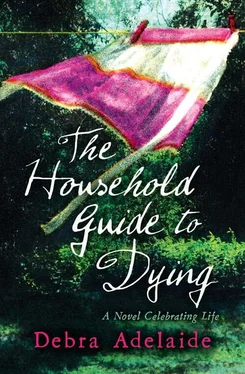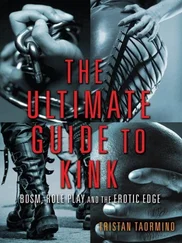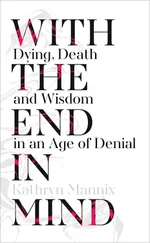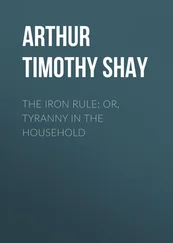Of course, I was young then, I would think that. I was a walking cliché. Seventeen, pregnant, alone. I had fought with my mother yet again. I had not fought with my boyfriend, Van, since I’d been denied the opportunity when he simply disappeared, justifying all the doubts about him my mother had had ever since she first met him. The more she had tried to talk me into an abortion the more I resisted. She was motivated, I understood eventually, only by concern, and distress that I was throwing away my educational opportunities to strap down my life with a baby before I was barely grown myself. I was motivated instead by my ideals, my dreams, adoring Van and falling easily into his older, larger world of music and poetry and inner-city sophistication.
The morning I had woken in Van’s room in Newtown and noticed his romantically meagre belongings were gone, I had felt a sick stab of suspicion, soon confirmed when after days I heard and found out nothing. By then it was too late for an abortion, and definitely too late to admit my mother was right about him.
I couldn’t say at what point I became convinced that Van had returned north to the town where he grew up and where his talented performing family still lived. All I remembered was the aching conviction that north in Amethyst was where I would find him. Or he would find me, and our baby.
Dear Delia
I’ve been reading your column for some years now and I reckon I could do just as well. Who needs to be qualified to write about dirty shirt collars and poultry stuffing anyway?
Yours
Cynical.
Dear Cynical
Perhaps you are unaware that books of household advice form an integral part of our literary heritage. They are cherished by readers the world over and have been particularly sought in times of distress and hardship. Mrs Beeton’s Book of Household Management was beloved by the most unlikely of readers: the conquerors of Mount Everest, the trench soldiers on the battlefields of France. Members of many journeys and expeditions have all drawn comfort from its practical advice and general historical knowledge infused with moral ardour and homely goodness. The members of Scott’s Antarctic expedition might have perished, but they did so with copies of Mrs Beeton in their hands.
The fact that generations of women managed without a single self-help guide is admirable and humbling. Now the number of books available on domestic advice, from specialist titles devoted entirely to stain removal to baby care books and handy manuals taking a novice through simple family meals step by step, is enormous. More than enough to stock several shelves in the average bookstore. A hundred and fifty years back there were approximately none. Mrs Beeton’s Book of Household Management was the first, and that did not appear until 1861. How ever did women manage before the likes of Mrs Beeton?
Unlike Isabella Beeton’s, my career as a household expert was accidental. The series of Household Guides had become mine and made my reputation, but the original idea belonged to Nancy Costello, a commercial publisher and my employer – if freelancers had employers – and also a friend, though in a limited sense. Nancy and I enjoyed a warily pleasant relationship, one in which neither of us was committed to remembering the other’s birthday or socialising regularly, but in which we could ring each other up any time about almost anything. There was no sense of obligation, and no occasion for confusion, resentment or hurt. I doubted I’d ever tell Nancy my best secrets or discuss with her my worst fears, but on the other hand I was always able to count on things like frank gossip, her best recipes (she was a great cook), or the loan of her car should I ever need it.
Nancy was pragmatic, efficient, opportunistic, ahead of her time. She understood, then knew how to address, the crises of confidence that saw intelligent people confounded by the prospect of hanging a painting, replacing a boot heel, or boiling a perfect soft egg. Her first great success was getting a free household magazine into millions of households. Her second was to develop a series of specialist self-help titles that even the vast self-help title industry had not yet thought of.
Nancy decided that the home was diminishing as the site of traditional folklore and knowledge, of mainly female authority. Whereas women had once known almost instinctively how to polish furniture or remove wine stains, now they were more likely to understand how to program a digital set top box, or complete their quarterly tax statement. While it was true that fewer men could now trim hedges or degrease driveways, the deficiency was more obvious in women, who were so traditionally bound to the home. Too many homes were now empty places, physically, psychically but also culturally, lacking the memories, knowledge and wisdom formerly accumulated like cherished crockery and handed down from generation to generation. Like an indigenous language that was no longer spoken, the lore of household life was rapidly becoming extinct, from descaling kettles to preserving peaches, from the uses for naphthalene to the best method for beer-battering fish.
At least, that was Nancy’s view and in some ways she was right. Although my own home, and the home that Jean maintained when I was growing up, was filled with the making of food, of clothes, of messes then of cleanliness, over and over, so regularly you almost never noticed it was there, Nancy represented another type of contemporary woman altogether: a woman who was prepared to acknowledge the importance of the household, but wasn’t personally interested in it. Nancy’s home was a lean and austere place, so tidy that it barely needed cleaning. I knew, without ever having opened any of her cupboards, that she didn’t possess a single bag of fabric scraps and wool oddments, nor a collection of reused Christmas wrapping paper, nor a drawer filled with old corks, bent skewers, rubber bands, chopsticks, stained tea strainers, undisposed disposable plastic spoons and an incomplete set of tin cookie cutters like other households, including mine, did.
Archie and I were starting out when I first met Nancy. Or here, in the city, we were starting out again. He was slowly lawnmowing his way into something we had begun to call a business, and I was working as an editorial assistant. Archie had supported my desire to take up the university place I’d rejected years before thanks to my unplanned pregnancy and naïve ideals. Always a devoted reader, I found myself surprisingly ahead when I commenced the arts degree. I finished under time to discover I was brilliantly unqualified for anything. I understood later the degree was more void-filling than vocationally satisfying. It was the wrapping, layers of it, around my grief. But I was happy enough to take on the only job I was qualified for – if being a good reader qualified you for anything – copyediting and proofreading for Academic Press. We published books by obscure academics, books as faded and dull as the authors themselves. They may as well have been bound in brown corduroy. Soon after I met Nancy, in her capacity as book marketing consultant, Academic Press closed its squeaking doors for good. By then I had Estelle, who was followed three years later by Daisy. After that I only freelanced, an arrangement that suited me with two small children.
When Nancy began the household guides I wasn’t her first choice of author. That was a man by the name of Wesley Andrews, an enterprising person who was known as a bright spark, someone who had great contacts, who got things done. Who seemed to have a hand in all sorts of books and literary ventures. Who’d written perfectly competent novels as well as ghostwritten mediocre but bestselling memoirs of sporting personalities. He had seemed in every way the right person to put his name and imprimatur on the inaugural guide: The Household Guide to Home Maintenance. Correctly understanding that the first book in the series should capture both male and female readers, Nancy felt a male author was necessary. But until the writing ground to a halt somewhere between chapter eight (Roofing and Guttering) and chapter nine (Windows and Flyscreens), no one had any idea that Wesley’s chief literary driving force, if not navigator and mechanic, had been his wife – who, by chapter seven (Patching and Painting) had left him for good. Which perhaps explained why the opinions and recommendations on Simple Plumbing Repairs and Basic Electrics in chapters five and six were so very simple and basic. That is where I came in.
Читать дальше












